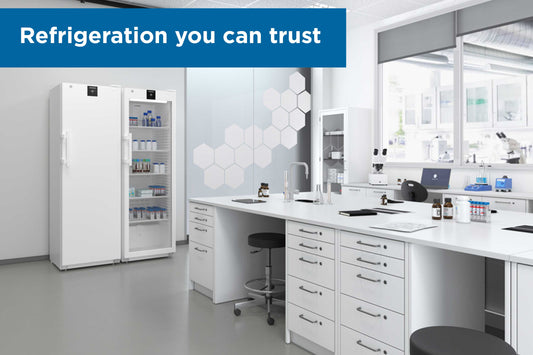When it comes to food safety, there are basic things we should always be doing in food preparation areas. Washing hands, keeping surfaces clean, and storing foods properly are all part of standard procedure. But to prevent Listeria spreading, it helps to understand more about this particular pathogen – where it comes from, the environments in which it can thrive, and the foods that can carry the greatest risk.
Where does Listeria come from?
Listeria – or Listeria monocytogenes to give it its full scientific name – is a bacterium found in soil, water, dust, and animal faeces. It’s a food-borne pathogen, spread by the consumption of infected food and surfaces where food is prepared.
Unfortunately, Listeria has the ability to grow at cold temperatures. So if contaminated food is refrigerated, the bacteria multiply and have the potential to spread to other foods. Even freezing food that’s infected won’t get rid of Listeria.
Which foods can contain Listeria?
The most common types of food that can harbour Listeria are uncooked meats, poultry and fish, as well as ready-to-eat foods such as deli meats and refrigerated pates, shellfish and unpasteurised dairy products. Although these foods are the most common to be linked with Listeria food poisoning, the bacteria can also be found in contaminated fruit and vegetables.
As mentioned above, once contaminated food finds its way into the refrigerator, Listeria monocytogenes can spread to other nearby foods. And because you can’t see, smell or taste the bacteria, there’s no way of knowing if food is infected until after you’ve eaten it.
Who is most at risk of contracting a Listeria infection?
While most cases of Listeriosis are mild and go unnoticed, in the more serious cases they can lead to life-threatening complications including septicemia and meningitis.
There are two main groups of people who are most susceptible to Listeria infections:
- Pregnant women and their babies: For pregnant women, a Listeria infection may cause a mild illness but it can be extremely dangerous for the child they are carrying. It can lead to miscarriage, premature birth or stillbirth, or a potentially fatal infection for the newborn.
- People with weak immune systems: Low immunity can make people much more vulnerable to infectious diseases like Listeriosis. These groups include people over 60, people with AIDS, people with diabetes or kidney disease, and those undergoing chemotherapy.
People who fall within either of these groups should take extra precautions with the foods mentioned above and be aware of the elevated risk.
How can I prevent the spread of Listeria?
Inhibiting the spread of bacteria is a vital part of food safety, particularly within commercial environments where food is prepared.
Controlling Listeria comes down to maintaining a clean, dry environment and adhering to strict hygiene guidelines:
-
Wash your hands
An obvious one, but before handling or preparing food, wash your hands thoroughly (at least 20 seconds) with warm, soapy water – and wash them again afterwards.
-
Keep surfaces clean
In processing facilities and other food preparation areas, no surface should be overlooked. Floors, walls, ceilings need to be considered in cleaning routines, just as work surfaces do. Heating, ventilation systems and air conditioning units also need to be kept clean and hygienic.
-
Clean utensils and equipment
Before any food preparation or cooking takes places, ensure all utensils, chopping boards and surfaces are clean. Afterwards, wash them with hot, soapy water. It’s also important to keep the inside of refrigerators clean and sanitised.
-
Wash raw fruit and veg
Even if you plan to peel the fruit or vegetables, wash them first – use a scrubbing brush or vegetable brush and clean them under running water.
-
Get the temperature right
Keep refrigerators to 40 degrees Fahrenheit or lower and freezers to 0 degrees or lower (even though Listeria can still grow in these conditions, it will grow more slowly at 40 degrees or less). When cooking food it’s important to cook it to a safe temperature – use a food thermometer to make sure meat, poultry and egg dishes are properly cooked before being consumed.
Clearly, reducing the risk of Listeria in the first place is far preferable to dealing with the consequences of an outbreak.
Teknomek stainless steel furniture and equipment is designed to help reduce risk in food preparation areas, with minimal dirt traps and the ability to stand up to rigorous cleaning routines.




